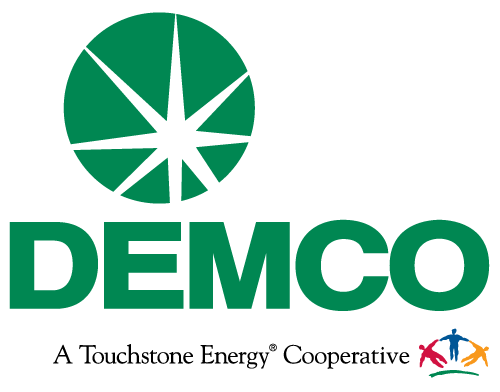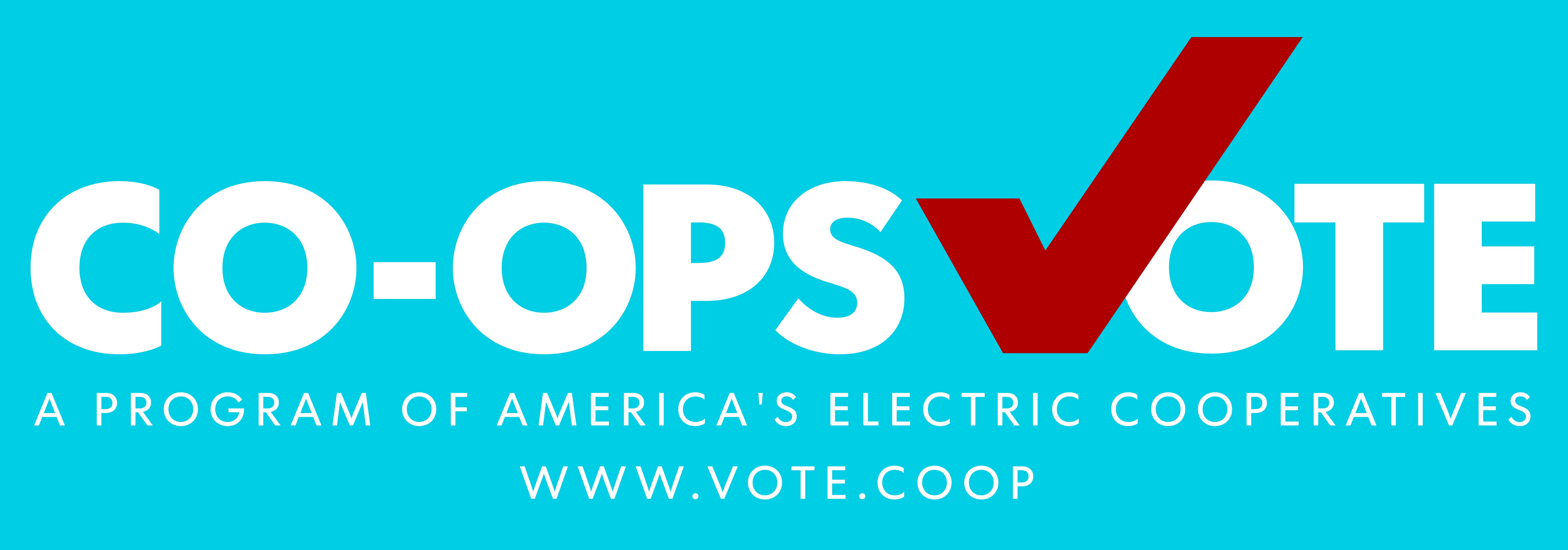The Cooperative Difference
Powering Life and Community ~ that's the Cooperative Difference.
The Cooperative Difference
Cooperatives come in many forms—credit unions, food co-ops, housing co-ops, and more—but they all have one thing in common: people join together to meet a shared need. In a cooperative, the people who use the service also own and control the business.
DEMCO, A Local Member-Owned Cooperative
Our story began in 1938 when local communities came together to bring light and power where there was none. They didn’t have access to electricity like in big cities, but they had the tenacity to build something different - a member-owned cooperative to power local homes, schools, and businesses.
As a not-for-profit electric distribution cooperative, we deliver electricity to homes and businesses across our service area, and we’re owned by the people we serve. As a not-for-profit business, our goal isn’t to make money for shareholders—we don’t have any. Instead, we operate solely for the benefit of our members.
Our cooperative is governed by a board of directors elected by—and from within—our membership. These board members are your neighbors. They help make decisions that prioritize reliability, affordability, and service, ensuring DEMCO stays rooted in the best interests of the community.
Back then and still today, DEMCO is more than just an electric company – we are your neighbors, your family, and your friends.
Seven Cooperative Principles
Around the world—and right here at DEMCO—cooperatives are guided by seven core principles:
1) Voluntary and Open Membership
2) Democratic Member Control
3) Member Economic Participation
4) Autonomy and Independence
5) Education, Training, and Information
6) Cooperation Among Cooperatives
7) Concern for Community
About DEMCO
-
Member-owned local electric distribution cooperative founded in 1938
-
DEMCO’s mission is to enhance the quality of life for our members, employees, and communities by safely providing reliable and competitively priced energy services.
-
Not-for-profit electric cooperative; does not have shareholders
-
Powering 120,000+ meters, 9,245 miles of line
-
Seven-parish service area: Ascension, East Baton Rouge, East Feliciana, Livingston, St. Helena, Tangipahoa, and West Feliciana
-
Member service center located in each parish we serve: Headquarters/Central, Denham Springs, Galvez, Greensburg, Livingston, St. Francisville, and Zachary
-
Serve 12.8 meters per mile of line
-
Governed by a thirteen-member Board of Directors, elected by the membership for a three-year term
-
270+ employees
-
State-of-the-art modern distribution and transmission system that comprises 9,245 miles of line and 35 substations, three switching stations, two mobile substations, and ten metering points
-
Largest electric co-op in Louisiana in terms of meters
-
One of the largest of 900+ electric co-ops in America
-
Top 100 company in East Baton Rouge parish
-
Annual employee giving averages $65,000 to two local organizations Dream Day Foundation and Capital Area United Way
-
Electric distribution system is continually monitored by a Supervisory Control and Data Acquisition (SCADA) system that detects system issues
-
DEMCO Foundation was established in 1997, with contributions to members in need that exceed $6M
-
The Seven Cooperative Principles
Voluntary and Open Membership
Cooperatives are voluntary organizations, open to all persons able to use their services and willing to accept the responsibilities of membership, without gender, social, racial, political or religious discrimination.

-
Democratic Member Control
Cooperatives are democratic organizations controlled by their members, who actively participate in setting policies and making decisions. The elected representatives are accountable to the membership. In primary cooperatives, members have equal voting rights (one member, one vote) and cooperatives at other levels are organized in a democratic manner.

-
Members’ Economic Participation
Members contribute equitably to and democratically control the capital of their cooperative.

-
Autonomy and Independence
Cooperatives are autonomous, self-help organizations controlled by their members. Democratic control and cooperative autonomy must be maintained when entering into any agreements with external sources.

-
Education, Training, and Information
Cooperatives provide education and training for their members, elected representatives, managers and employees so they can contribute effectively to the development of their cooperatives. They inform the general public, particularly young people and opinion leaders, about the nature and benefits of cooperation.

-
Cooperation Among Cooperatives
Cooperatives serve their members most effectively and strengthen the cooperative movement by working together through local, national, regional and international structures.

-
Concern for Community
While focusing on member needs, cooperatives work for the sustainable development of their communities through policies accepted by their members.



